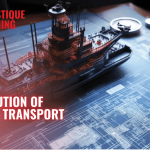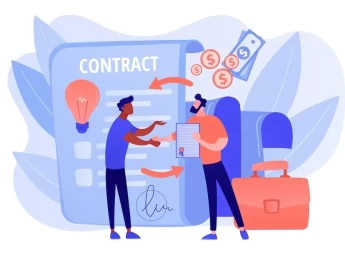For some businesses, transporting goods overseas is necessary to take advantage of cheaper prices in other countries, make a profit, or simply buy goods not available in the home country for sale.
However, getting the goods across the ocean safely can be tricky. A freight transportation company has many responsibilities regarding the safe transportation of goods, and it’s important to understand your obligations, how to prevent accidents, and how to recover when incidents occur.
Aside from the health and safety obligations for freight transportation companies, there are laws and regulations in place depending on where you’re transporting from and to, and it’s essential to understand the laws in each country to ensure the proper documentation is provided. If goods are not correctly signed in and out of each country, your freight drivers could be stopped at the border, and the goods could be confiscated, resulting in fines for your organisation.
Training your drivers and distribution staff to handle problems and procedures to ensure their safety, health, well-being, and the security of any transported goods is essential.
Upon completion of this course, participants will be able to:
- Develop tools and systems that allow you to manage freights effectively and productively.
- Understand the most effective transport method for different goods and locations.
- Decipher how political changes could affect goods transportation.
- Look at the role of the Channel Tunnel on freight movement.
- Discuss the management of freight employees.
- Conduct risk assessments to understand the safety requirements and mitigate incidents.
- Create a profitable freight transportation framework that benefits your business and your partners.
This course is designed for anyone who aims to develop a successful freight company or is employed as part of the freight team for overseas goods transportation. It is particularly beneficial for:
- Business owners
- Freight operations managers
- Logistics managers
- Freight drivers
- Administration assistants handling overseas goods.
- Health and safety officers
- Warehouse managers
This course has been created using a variety of adult learning styles to develop participants’ knowledge about the requirements and responsibilities of an overseas freight company.
During this course, you will participate in practical group exercises to explore the outcomes of manual handling, create effective logistical frameworks to ensure the cost-effectiveness of your operation and discover the severe environmental impacts your freight operation creates through presentations and trainer-led seminars.
Day 5 of each course is reserved for a Q&A session, which may occur off-site. For 10-day courses, this also applies to day 10
Section 1: Your Role in Intermodal Transport
- How intermodalism affects a transportation business.
- Your role and obligations.
- The growth of the freight transport industry.
- Useful terminology and definitions.
- Future intermodal forecasting.
Section 2: Regulations Across Countries
- UK intermodal policies.
- Crossing EU borders.
- Reports and legislation.
- Amendments to laws and transportation.
Section 3: Developments in Transportation Methods
- The Channel Tunnel and changes to transportation by rail.
- Safe methods of container transportation.
- Commercial developments.
- Transportation by rail.
- Transportation by sea.
- Fuel price changes and efficiency.
Section 4: Intermodalism in the World Market
- IRU/UIC combined transport regulations.
- Obtaining financial support.
- Rail interoperability.
- The EU Intermodality Task Force.
- Operational changes and developments.
- Transportation in North America and Canada.
- Transportation in Australia
- Transportation from the Middle East.
Section 5: Road Haulage Regulations
- Lorry sizes vs. weight distribution.
- LRUC: Lorry Road User Charging.
- Congestion charges.
Section 6: Rail Operations
- Private railways for haulage.
- Loading gauge issues.
- Piggybank operations.
- Eurotunnel uses.
- Freight aggregators and integrators.
- Carriage weight regulations.
Section 7: Waterway Transportation
- Incidents with transportation on water.
- UK inland waterways.
- Ocean transportation.
- Container shipping and employee accompaniment.
Section 8: Thinking About the Environment
- Minimising exhaust emissions.
- Which transportation method is best for the environment?
- Environment vs economic factors.
- The EC’s viewpoint.
- Past economic reports.
- ECO-points for Austrian transport.
Section 9: Loading & Lifting
- Manual handling training and techniques.
- Lifting equipment and machinery.
- Employee risk assessments.
- Weight-bearing and loading equipment.
- Heavy good vehicle servicing.
Section 10: Documentation & Obtaining the Right Paperwork
- UK and overseas shipping grants and applications.
- The TEN-Ts.
- Trans European Freightways.
- The EC’s 2004 list of 30 TEN-T projects.
- Developing a valuable infrastructure.
Section 11: Health & Safety & Risk Mitigation
- Safety during docking.
- Road traffic accidents and handling collisions.
- Vehicle risk assessments.
- Duty of care.
- Creating effective risk assessments.
Section 12: Effective Communication
- Real-time driver communication.
- Driving working hours and overnight regulations.
- Resolving concerns remotely.
- Directing and correcting driver errors.
- Monitoring performance and adherence.
- Satellite tracking.
Section 13: Customs Procedures & Dangerous Goods Transportation
- International transport agreements.
- CMR: International Carriage of Goods by Road.
- CIM: International Carriage of Goods by Rail.
- Obtaining community authorisation.
- Bilateral road haulage permits.
- Insurance and compensation.
- Permit checks and customs forms.
- ATA Carnets.
- Dangerous goods legislation.
- RID and IGC regulations.
Upon successful completion of this training course, delegates will be awarded a Holistique Training Certificate of Completion. For those who attend and complete the online training course, a Holistique Training e-Certificate will be provided.
Holistique Training Certificates are accredited by the British Assessment Council (BAC) and The CPD Certification Service (CPD), and are certified under ISO 9001, ISO 21001, and ISO 29993 standards.
CPD credits for this course are granted by our Certificates and will be reflected on the Holistique Training Certificate of Completion. In accordance with the standards of The CPD Certification Service, one CPD credit is awarded per hour of course attendance. A maximum of 50 CPD credits can be claimed for any single course we currently offer.
- Course Code IND03-101
- Course Format Classroom, Online,
- Duration 5 days














